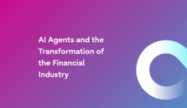SAP AI
Filter By
Browse By
- SAP Analytics and AI
- SAP Application Development and Integration
- All SAP Application Development and Integration
- SAP ABAP
- SAP ABAP Development Tools
- SAP ABAP Test Cockpit
- SAP API Management
- SAP BAPI
- SAP Basis
- SAP BRF
- SAP Business Application Studio
- SAP CMS
- SAP Design Studio
- SAP Development Tools
- SAP DevOps
- SAP EAI
- SAP EDI
- SAP Extension Suite
- SAP Fiori
- SAP Fiori Elements
- SAP Integration Suite
- SAP Low Code Application Development
- SAP Low Code Automation
- SAP Netweaver
- SAP Release Management
- SAP UI5
- SAP Web Application Server
- SAP Web IDE
- SAP Business Process Management
- SAP Center of Excellence
- SAP CIO
- SAP Customer Experience
- SAP Data and Data Management
- All SAP Data and Data Management
- SAP BW
- SAP BW/4HANA
- SAP Crystal Reporting
- SAP Data Archiving
- SAP Data Center
- SAP Data Governance
- SAP Data Integration
- SAP Data Migration
- SAP Data Quality
- SAP Data Services
- SAP Data Strategy
- SAP Data Visualization
- SAP Data Warehouse Cloud
- SAP DMS
- SAP Document Control
- SAP EIM
- SAP ETL
- SAP ETL Tools
- SAP HANA
- SAP HANA Administration
- SAP HANA Deployment Infrastructure
- SAP HANA Studio
- SAP Master Data
- SAP Master Data Governance
- SAP MDM
- SAP Enterprise Architect
- SAP Enterprise Asset Management
- SAP ERP
- SAP Finance
- All SAP Finance
- SAP Accounting
- SAP AR AP
- SAP Asset Accounting
- SAP Billing Systems
- SAP BPC
- SAP BRIM
- SAP Cash Management
- SAP Central Finance
- SAP Controlling
- SAP COPA
- SAP Cost Center Accounting
- SAP e-invoicing
- SAP FICO
- SAP Finance Automation
- SAP Financial Closing Cockpit
- SAP Financial Consolidation
- SAP Financial Planning
- SAP FX Risk
- SAP General Ledger
- SAP Global Tax Management
- SAP Hyperion
- SAP Order to Cash
- SAP Payment Processing
- SAP Profitability Analysis
- SAP Rebate Management
- SAP S/4HANA Finance
- SAP Universal Journal
- SAP Governance Risk and Compliance
- SAP Human Capital Management
- SAP Intelligent Technologies
- SAP Platform and Technology
- All SAP Platform and Technology
- SAP Business Technology Platform
- SAP Cloud Connector
- SAP Cloud Integration Platform
- SAP Cloud Migration
- SAP Cloud Platform
- SAP Cloud Providers
- SAP Cloud Strategy
- SAP Container Platform
- SAP Digital Asset Management
- SAP Digital Integration Hub
- SAP Digital Signature
- SAP HANA Enterprise Cloud
- SAP HEC
- SAP Hyperscalers
- SAP Infrastructure
- SAP Messaging
- SAP Smart Forms
- SAP Quality and Testing
- SAP Security
- SAP Spend Management
- SAP Supply Chain Management
- All SAP Supply Chain Management
- SAP APO
- SAP Asset Management
- SAP Business Network
- SAP Digital Manufacturing Cloud
- SAP Digital Twin
- SAP EWM
- SAP IBP
- SAP Inventory Management
- SAP Label Printing
- SAP Logistics
- SAP Manufacturing
- SAP Manufacturing Automation
- SAP MES
- SAP MII
- SAP MM
- SAP MRO
- SAP MRP
- SAP Order Management
- SAP Plant Maintenance
- SAP PLM
- SAP Production Planning
- SAP S&OP
- SAP SD
- SAP SPM
- SAP Supply Chain Planning
- SAP Track and Trace
- SAP Transportation Management
- SAP System Administration
What is Artificial Intelligence?
In simple terms, Artificial Intelligence (AI) refers to systems or solutions that can replicate human decision-making capabilities. These solutions often leverage a combination of software and hardware to mimic human capabilities like problem -solving and decision making.
AI Enabled Applications in SAP Portfolio
SAP applications leverage AI and ML algorithms extensively to either embed innovative capabilities within their solutions, help end-users perform advanced analytics with minimal technical proficiency, or allow data scientists and ML engineers to build advanced ML models and solutions. SAP HANA has been designed to be easily leveraged as a scalable ML platform. A powerful in-built tool is the Predictive Analytics Library (PAL). SAP data intelligence has a rich ML content library. Like most best-of-breed analytics tools, SAP Analytics Cloud provides users the ability to leverage advanced Machine Learning (ML) algorithms. While ML algorithms have many applications, predictive analytics remains a key one.
What is Artificial Intelligence?
In simple terms, Artificial Intelligence (AI) refers to systems or solutions that can replicate human decision-making capabilities. These solutions often leverage a combination of software and hardware to mimic human capabilities like problem -solving and decision making.
AI Enabled Applications in SAP Portfolio
SAP applications leverage AI and ML algorithms extensively to either embed innovative capabilities within their solutions, help end-users perform advanced analytics with minimal technical proficiency, or allow data scientists and ML engineers to build advanced ML models and solutions. SAP HANA has been designed to be easily leveraged as a scalable ML platform. A powerful in-built tool is the Predictive Analytics Library (PAL). SAP data intelligence has a rich ML content library. Like most best-of-breed analytics tools, SAP Analytics Cloud provides users the ability to leverage advanced Machine Learning (ML) algorithms. While ML algorithms have many applications, predictive analytics remains a key one.
On the business processes side, SAP AI offering promises to infuse transformative intelligence to all key business processes areas like lead to cash, design to operate, source to pay and recruit to retire. AI algorithms help include innovative features across all these processes.
Key Considerations
- Develop a fundamental understanding of AI algorithms: Explore what specific algorithms are available and understand where they can be leveraged. This will help you get optimal value from these tools. As an example, you should be aware that you can use clustering algorithms for customer segmentation. Here is an example of a good overview of critical algorithms used in SAP applications.
- Understand the limitations of underlying data infrastructure: Understanding aspects of the underlying database is also critical. This helps you build pragmatic models. As an example, HANA has a 2 billion rows limitation, and hence you may have to leverage partitioning of tables for data larger than that. This impacts your model development as well.
- Understand the limitations of tools available: Understanding the ML tools’ limitations is another aspect that saves you a lot of pain. For example, some PAL algorithms have limits on the number of parameters. This means you will have to pay more attention to feature selection or feature engineering while building models with these algorithms. You can find several examples of these limitations on the SAP help portal and SAP blogs.
89 results
-

Three Pillars Reshaping Australian Retail: AI, Resilience, and Consumer Trust
Published: 14/November/2025
Reading time: 3 mins
Australia’s retail landscape is transforming due to economic volatility and changing consumer expectations, compelling brands to integrate AI effectively, enhance supply chain resilience, and embed ethical practices to maintain consumer trust.
-

AI-Powered Data Governance for Smart Maintenance
Reading time: 1 min
Discover how PiLog’s AI-Powered Data Governance helps transform maintenance, boost uptime, and streamline asset management. Find out more
-

Enhance Enterprise Master Data with AI Governance Suite
Reading time: 1 min
Streamline ERP and CMMS data with PiLog’s AI Suite. Enhance governance, reduce costs, and improve visibility across business systems. Find out more
-
-

cbs Showcases End-to-End Data Analytics Capabilities at SAP NOW Southeast Asia and Australia
Reading time: 3 mins
cbs Corporate Business Solutions showcased its data-driven transformation strategy at SAP NOW events in 2025, receiving multiple awards for its integrated analytics architecture that enhances business value, particularly in sectors like agriculture through innovations like Precision Data Intelligence.
-

Agentic AI Could Be the Path to Efficiency Goals for Tech Leaders
Reading time: 2 mins
A recent SAPinsider report reveals that tech leaders in the SAP ecosystem are prioritizing process efficiency and visibility, with a strong focus on developing AI strategies, as they see AI and machine learning as key investments for improving business processes in 2025. Agentic AI could be a path to reach their efficiency goals.
-

CFO Sentiment: Global Uncertainty Dents Confidence
Reading time: 4 mins
Australia’s CFOs express growing optimism about the national economy while fearing diminishing business performance, with rising concerns over margin compression and competition amid uncertain global factors.
-

AI in SAP: Why “start smart, not big” is the winning strategy
Reading time: 3 mins
Amid the rapid evolution of AI within the SAP ecosystem, businesses are advised to proceed cautiously by starting with pilot projects to validate value, ensuring data integrity, and remaining aware of the technology’s maturing landscape.
-
-

AI Agents and the Transformation of the Financial Industry
Reading time: 10 mins
The rapid advancement of large language models has led to the emergence of autonomous AI agents in the financial sector, which effectively handle complex tasks and improve operational efficiency, ultimately reshaping the collaboration between humans and AI.
-

Resilience and AI: How smart retailers are combating tariffs
Reading time: 1 mins
Like many businesses you may well be facing tariff volatility, but AI can offer some much-needed resilience for retailers and CPG businesses looking to address this challenge. This article, from Nathan Cheng, Partner at Uvance Wayfinders, explores how smart retailers can use AI to combat tariffs and optimize sourcing, providing a roadmap for AI-powered resilience.…
-

Research Report: Technology Vision 2025
Reading time: 10 mins
As AI’s capabilities expand, leaders must foster trust among employees and consumers to leverage its autonomy effectively, reimagining business ecosystems and relationships.
Become a Member
Unlimited access to thousands of resources for SAP-specific expertise that can only be found here.
Related Vendors
Your request has been successfully sent

